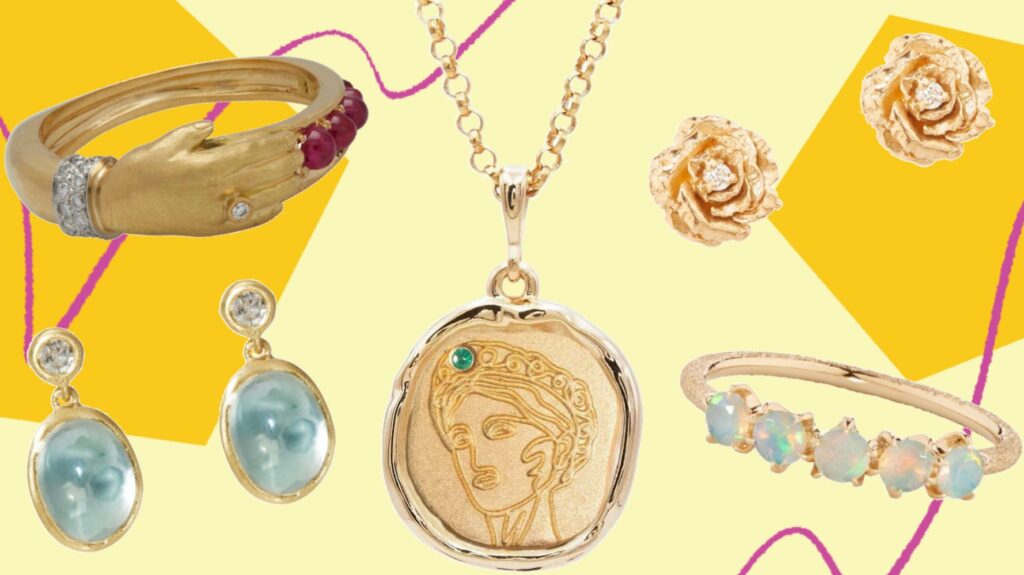In recent years, there has been a growing demand for eco-friendly and sustainable products in Vietnam, including in the cosmetic and jewelry industries. As consumers become more environmentally conscious, businesses that prioritize sustainability and embrace eco-friendly practices have a unique opportunity to differentiate themselves and build a strong brand. In this article, we will explore the importance of branding for eco-friendly and sustainable cosmetic and jewelry businesses in Vietnam.
I. Aligning Brand Values with Sustainability
Aligning brand values with sustainability is crucial for establishing a positive perception among consumers. When brands prioritize sustainability, they demonstrate their commitment to environmental and social responsibility, which resonates with conscious consumers. Aligning brand values with sustainability can create a positive brand image, enhance reputation, and attract consumers who prioritize eco-friendly practices.

Integrating sustainability into the core of the brand’s mission, vision, and values is essential for long-term success. It involves setting clear sustainability goals, incorporating sustainable practices into business operations, and making conscious decisions throughout the supply chain. By making sustainability an integral part of the brand’s identity, businesses can authentically communicate their commitment and inspire consumers to make eco-conscious choices.
II. Communicating Eco-Friendly Practices
Branding plays a crucial role in effectively communicating eco-friendly practices and initiatives to consumers. Through branding, businesses can convey their use of responsibly sourced materials, ethical manufacturing processes, and environmentally friendly packaging. Branding elements such as logos, packaging design, messaging, and marketing campaigns can showcase the brand’s dedication to sustainability.
By clearly communicating eco-friendly practices, brands provide consumers with the information they need to make informed purchasing decisions. This transparency builds trust and credibility, as consumers appreciate businesses that are open about their sustainable efforts. Through branding, businesses can educate consumers about their eco-friendly initiatives and inspire them to choose products that align with their values.
III. Emphasizing Transparency and Authenticity
Transparency is crucial when sharing information about a brand’s sustainable practices and supply chain. Consumers increasingly expect businesses to provide detailed information about the origins of materials, production processes, and environmental impact. By being transparent, brands can build trust and demonstrate their commitment to sustainable practices.

Authentic storytelling is another important aspect of building trust and credibility with consumers. By sharing stories about the brand’s sustainability journey, challenges, and successes, businesses can create an emotional connection with consumers. Authenticity in sustainability efforts helps consumers feel that they are supporting a brand that genuinely cares about the environment, fostering loyalty and long-term relationships.
IV. Showcasing Product Benefits and Quality
Branding is instrumental in highlighting the benefits of eco-friendly and sustainable products. By communicating features such as natural ingredients, cruelty-free formulations, and durability, brands can showcase the unique qualities of their products. This allows consumers to make informed choices that align with their values and preferences.
Additionally, branding plays a vital role in conveying the quality and craftsmanship of cosmetic and jewelry products. Sustainability does not mean compromising on quality. Effective branding can communicate that eco-friendly products are not only environmentally conscious but also offer exceptional performance and durability. By emphasizing quality, brands can overcome any misconceptions about sustainable products and position themselves as leaders in their industries.
V. Engaging and Educating Consumers
Branding is a powerful tool for engaging and educating consumers about sustainable lifestyle choices and the impact of their purchasing decisions. Through compelling content and campaigns, brands can raise awareness, inspire behavior change, and provide practical tips for adopting a sustainable lifestyle.
Brands can leverage their online presence, including websites, social media platforms, and blogs, to share educational content about sustainability. Engaging consumers through storytelling, visual content, and interactive campaigns helps create a deeper connection and fosters loyalty. By positioning themselves as thought leaders in sustainability, brands can become valuable resources for consumers seeking eco-friendly solutions.
VI. Building a Community of Like-Minded Consumers
Branding can facilitate the creation of a community of like-minded consumers who share similar values and aspirations. Through shared experiences, values, and goals, brands can connect individuals who are passionate about sustainability. Social media platforms and digital communities provide opportunities for engagement, collaboration, and brand advocacy.

Brands can encourage consumer participation through user-generated content, contests, and collaborative projects. By fostering a sense of community, brands not only strengthen their relationships with customers but also amplify their message and reach a wider audience. Engaged and loyal consumers become brand ambassadors who spread the word, generate positive reviews, and attract new customers who are aligned with the brand’s sustainability mission.
In conclusion, for eco-friendly and sustainable cosmetic and jewelry businesses in Vietnam, branding plays a vital role in establishing a strong market presence and connecting with like-minded consumers. By aligning brand values with sustainability, effectively communicating eco-friendly practices, emphasizing transparency and authenticity, showcasing product benefits and quality, engaging and educating consumers, and building a community of like-minded individuals, businesses can create a compelling brand identity that resonates with their target audience. Through strategic branding efforts, these businesses can not only drive growth and profitability but also contribute to a more sustainable and environmentally conscious future.
Key Takeaways:
- Aligning brand values with sustainability is essential for eco-friendly and sustainable businesses.
- Branding communicates eco-friendly practices and initiatives to consumers.
- Transparency and authenticity are key in building trust and credibility.
- Branding highlights product benefits, quality, and craftsmanship.
- Engaging and educating consumers fosters eco-conscious decision-making.
- Building a community of like-minded consumers strengthens brand advocacy.
Contact us today to discuss how we can assist you in developing a compelling brand strategy for your business!

Leave a Reply